Humans
Sign up for our newsletter
We summarize the week's scientific breakthroughs every Thursday.
-
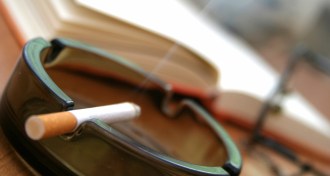 Environment
EnvironmentThirdhand smoke poses lingering danger
Harmful cigarette chemicals that linger on surfaces, known as thirdhand smoke, can go on to pollute the air and may harm people’s health.
By Beth Mole -
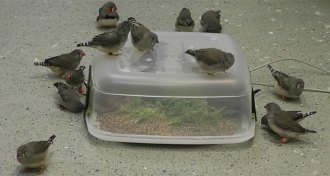 Neuroscience
NeuroscienceFor a friendlier zebra finch, just add stress
Adding stress hormones to the diet of developing zebra finches produced birds that were social butterflies.
-
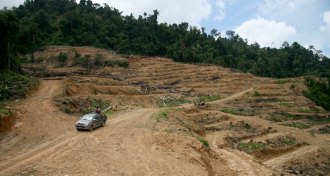 Health & Medicine
Health & MedicineUncommon malaria spreading in Malaysia
Malaria parasite’s jump from monkeys to people seems aided by deforestation in Malaysia.
By Nathan Seppa -
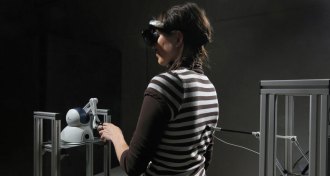 Psychology
PsychologyWith a tap on the back, researchers create ghostly sensation
Experimentally induced illusion probes supernatural experiences, hallucinations.
By Bruce Bower -
 Materials Science
Materials ScienceBatteries become safe to swallow with spongy covering
Quantum-inspired coating switches from a conductor to an insulator to prevent injury from swallowed batteries.
By Beth Mole -
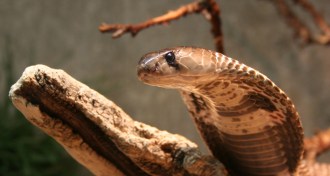 Health & Medicine
Health & MedicineSnakebite test correctly IDs attackers in Nepal
A new test that swabs for traces of snake DNA around bite marks can identify the guilty serpent and may improve treatments.
By Nathan Seppa -
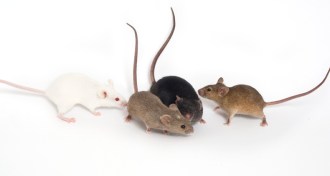 Genetics
GeneticsGenes influence Ebola’s impact
A study in a diverse strain of mice shows how the effect of an Ebola infection can depend on genes.
By Meghan Rosen -
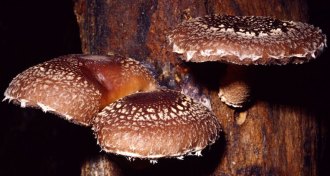 Health & Medicine
Health & MedicineMushroom extract might eradicate HPV infection
In a small trial, a nutritional supplement derived from shiitake mushrooms wiped out dormant human papillomavirus infections.
By Nathan Seppa -
 Health & Medicine
Health & MedicineDengue vaccine offers partial protection
Shots reduce severe cases of dengue among children in large study in Latin America.
By Nathan Seppa -
 Health & Medicine
Health & MedicineIncrease in Denmark’s autism diagnoses caused by reporting changes
Changes in how autism is detected and recorded explain 60 percent of the recent increase in diagnoses, a Danish study finds.
-
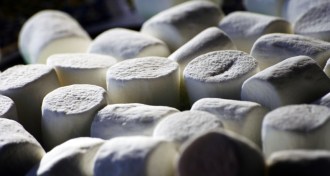 Psychology
PsychologyMastering the art of self-control
Walter Mischel, the psychologist behind the marshmallow test, discusses his new book on self-control and willpower.
By Bruce Bower -
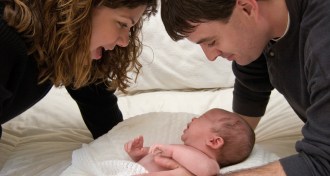 Health & Medicine
Health & MedicineMoms are more likely than dads to chat with newborns
Even when fathers are around, mothers tend to talk to their babies more and respond to infants’ vocalizations.